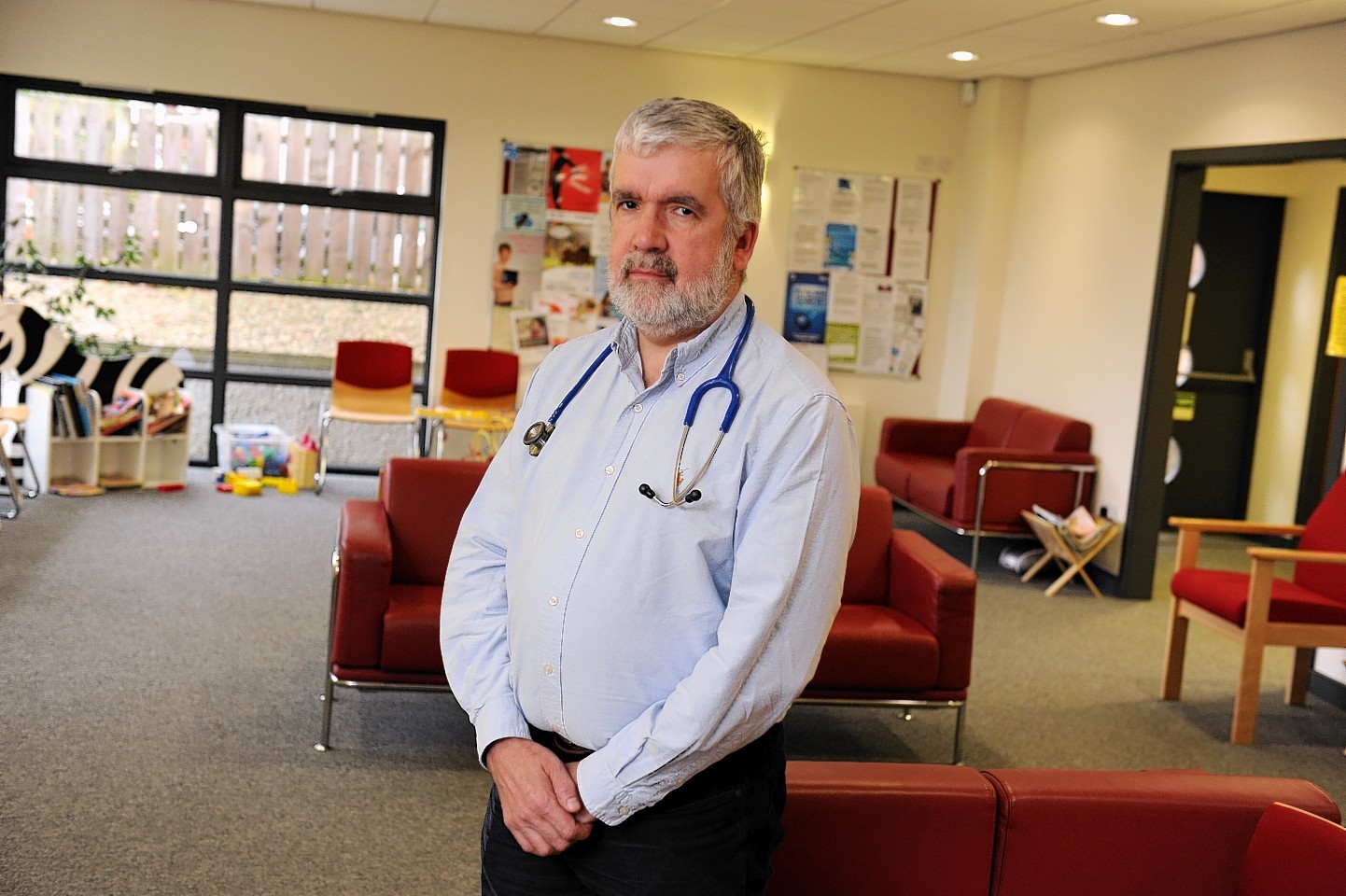A retired north-east GP has warned patients “will suffer” if there is not a drastic overhaul of the health service in Scotland.
Dr Ken Lawton, who recently retired after three decades as a senior partner at Great Western Medical Practice in Aberdeen, has called on the Scottish Government to put its “money where its mouth is” and increase funding for GPs.
And the 57-year-old last night claimed there is a deepening primary care crisis, which could ultimately impact on the rest of the health service.
His comments come just weeks after a survey revealed that almost nine in 10 doctors worry patient care is being put at risk by a lack of resources.
He said: “The big issue is that although the Scottish Government has said the funding for health has gone up, the proportion of the cake that is coming into general practice has gone from just under 10% to well below 8%.
“The minister (Shona Robison) talks about real terms money that’s in the system, but the amount of money that’s coming into general practice is much less.
“That’s against a background of a population that’s becoming older, it’s against a background of major changes in secondary care where people aren’t staying in hospital for as long, so they’re being discharged sooner and they need to be looked after and cared for at home by the GP and their team.”
Last month’s survey was carried out by the Royal College of General Practitioners Scotland (RCGP Scotland).
The organisation, which Dr Lawton chaired between 2007-10, called for the government to increase general practice’s share of the health service to 11%.
Last night Dr Lawton, who is a senior lecturer in general practice at Aberdeen University, acknowledged the government has budgetary constraints of its own.
But he insisted health could not be cast aside in favour of investment in other areas.
He added: “I’m a realist, more money coming into health care in Scotland means less coming into education and roads – we have a limited budget – but unless you have a healthy nation, all else fails.
“By not investing in health, you’re laying down a bed rock for an unhealthy population which will cost much more further down the line, it’s very shortsighted.
“If nothing changes I think general practice will move further into crisis, it will become increasingly difficult to recruit doctors, we’ll see a very changed picture of general practice and waiting times will go up.
“If there are not the practitioners on the ground to provide that care would be that patients’ health could suffer.”
Health Secretary Shona Robison last night insisted the government was committed to investing in primary health care, and argued funding for GPs had increased from £704million in 2007/08 to £852million in 2014/15.
She added: “However, it is important that the investment made to general practice is seen in a broader context.
“We are investing in other areas of the health service which will have a beneficial impact on general practice, such as increased investment in the ambulance service, recruitment of more health visitors and increased support for community-based mental health services. In addition, territorial health boards, who allocate funding from their central budget to primary care, have seen their budgets increase by 5.5% this year.
“In addition, in Scotland we are transforming primary care, supported by £85million of extra investment to put in place long-term, sustainable change within GP services that can better meet changing needs and demands.
“We have also pledged to increase GP training places for medical students from 300 to 400 a year and are expanding schemes to encourage trained GPs to return to practice in the NHS. We are working closely with the BMA and the Royal College of GPs to reduce workload, including our pioneering agreement to abolish the bureaucratic system of GP payments, and work towards a brand new Scottish GP contract from 2017 that will make primary care services fit for the future. A £20million package to support GPs will also help ease pressures on workload in the short term, and contribute to putting general practice on a more long-term sustainable footing.”
